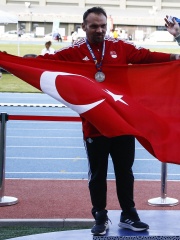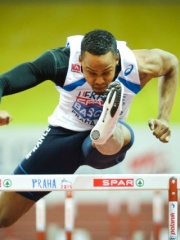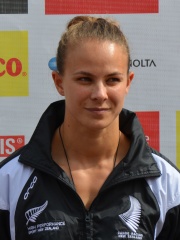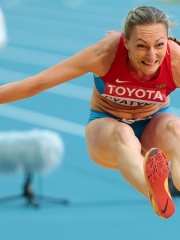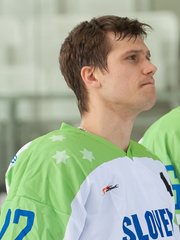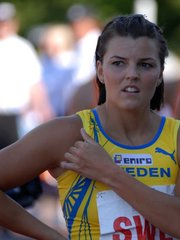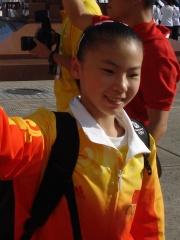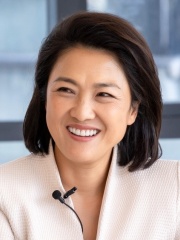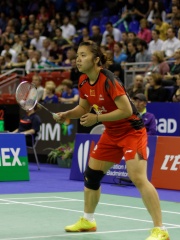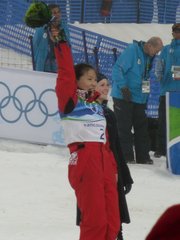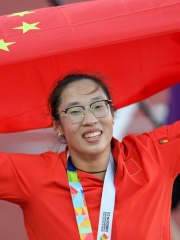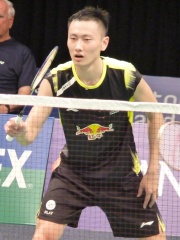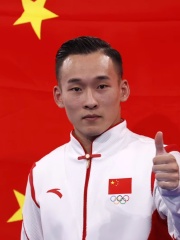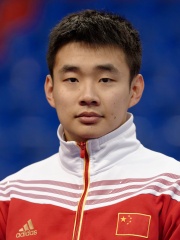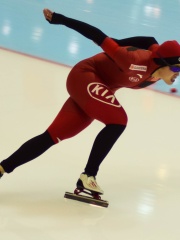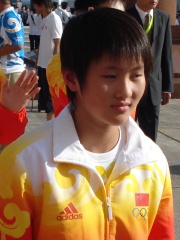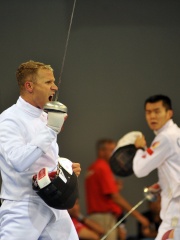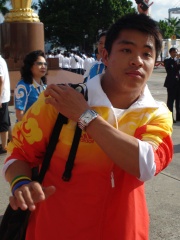ATHLETE
Wang Lei
1981 - Today

 Wang Lei
Wang Lei
Wang Lei (Chinese: 王磊; pinyin: Wáng Lěi; born March 20, 1981, in Shanghai) is a Chinese épée fencer. Wang won the gold medal at the épée 2006 World Fencing Championships after beating Joaquim Videira 6-5 in the final. He also won the silver medal in the 2004 Summer Olympics. Read more on Wikipedia
His biography is available in 17 different languages on Wikipedia. Wang Lei is the 5,726th most popular athlete (down from 4,874th in 2024), the 1,560th most popular biography from China (down from 1,434th in 2019) and the 131st most popular Chinese Athlete.
Memorability Metrics
Page views of Wang Lei by language
Among ATHLETES
Among athletes, Wang Lei ranks 5,726 out of 6,025. Before him are Emanuele Di Gregorio, Pascal Gentil, Julia Dujmovits, Regina Jacobs, Eşref Apak, and Naomi van As. After him are Fernando Pimenta, Dimitri Bascou, Hanna Marusava, Diane Dixon, Lisa Carrington, and Stine Brun Kjeldaas.
Most Popular Athletes in Wikipedia
Go to all RankingsEmanuele Di Gregorio
1980 - Present
HPI: 38.25
Rank: 5,720
Pascal Gentil
1973 - Present
HPI: 38.25
Rank: 5,721
Julia Dujmovits
1987 - Present
HPI: 38.25
Rank: 5,722
Regina Jacobs
1963 - Present
HPI: 38.24
Rank: 5,723
Eşref Apak
1982 - Present
HPI: 38.24
Rank: 5,724
Naomi van As
1983 - Present
HPI: 38.23
Rank: 5,725
Wang Lei
1981 - Present
HPI: 38.23
Rank: 5,726
Fernando Pimenta
1989 - Present
HPI: 38.23
Rank: 5,727
Dimitri Bascou
1987 - Present
HPI: 38.23
Rank: 5,728
Hanna Marusava
1978 - Present
HPI: 38.23
Rank: 5,729
Diane Dixon
1964 - Present
HPI: 38.23
Rank: 5,730
Lisa Carrington
1989 - Present
HPI: 38.23
Rank: 5,731
Stine Brun Kjeldaas
1975 - Present
HPI: 38.22
Rank: 5,732
Contemporaries
Among people born in 1981, Wang Lei ranks 1,371. Before him are Tom Guiry, Liam Miller, Anna Pyatykh, Marcel Rodman, Luke Ridnour, and Jenny Kallur. After him are Shu-Aib Walters, Stephen Warnock, Takamichi Seki, Beth Botsford, Elvira Khasyanova, and David Gilbert.
Others Born in 1981
Go to all RankingsTom Guiry
ACTOR
1981 - Present
HPI: 38.30
Rank: 1,365
Liam Miller
SOCCER PLAYER
1981 - 2018
HPI: 38.29
Rank: 1,366
Anna Pyatykh
ATHLETE
1981 - Present
HPI: 38.28
Rank: 1,367
Marcel Rodman
HOCKEY PLAYER
1981 - Present
HPI: 38.27
Rank: 1,368
Luke Ridnour
BASKETBALL PLAYER
1981 - Present
HPI: 38.26
Rank: 1,369
Jenny Kallur
ATHLETE
1981 - Present
HPI: 38.25
Rank: 1,370
Wang Lei
ATHLETE
1981 - Present
HPI: 38.23
Rank: 1,371
Shu-Aib Walters
SOCCER PLAYER
1981 - Present
HPI: 38.23
Rank: 1,372
Stephen Warnock
SOCCER PLAYER
1981 - Present
HPI: 38.21
Rank: 1,373
Takamichi Seki
SOCCER PLAYER
1981 - Present
HPI: 38.21
Rank: 1,374
Beth Botsford
SWIMMER
1981 - Present
HPI: 38.19
Rank: 1,375
Elvira Khasyanova
SWIMMER
1981 - Present
HPI: 38.18
Rank: 1,376
David Gilbert
SNOOKER
1981 - Present
HPI: 38.15
Rank: 1,377
In China
Among people born in China, Wang Lei ranks 1,560 out of 1,610. Before him are Tang Gonghong (1979), Cheng Xunzhao (1991), He Kexin (1992), Zhang Xin (1985), Tian Qing (1986), and Guo Xinxin (1983). After him are Li Ching (1975), Feng Bin (1994), Zhang Nan (1990), Xiao Ruoteng (1996), Ma Jianfei (1984), and Yu Jing (1985).
Others born in China
Go to all RankingsTang Gonghong
ATHLETE
1979 - Present
HPI: 38.37
Rank: 1,554
Cheng Xunzhao
MARTIAL ARTS
1991 - Present
HPI: 38.33
Rank: 1,555
He Kexin
GYMNAST
1992 - Present
HPI: 38.33
Rank: 1,556
Zhang Xin
BUSINESSPERSON
1985 - Present
HPI: 38.32
Rank: 1,557
Tian Qing
BADMINTON PLAYER
1986 - Present
HPI: 38.31
Rank: 1,558
Guo Xinxin
SKIER
1983 - Present
HPI: 38.26
Rank: 1,559
Wang Lei
ATHLETE
1981 - Present
HPI: 38.23
Rank: 1,560
Li Ching
TABLE TENNIS PLAYER
1975 - Present
HPI: 38.20
Rank: 1,561
Feng Bin
ATHLETE
1994 - Present
HPI: 38.13
Rank: 1,562
Zhang Nan
BADMINTON PLAYER
1990 - Present
HPI: 38.13
Rank: 1,563
Xiao Ruoteng
GYMNAST
1996 - Present
HPI: 38.12
Rank: 1,564
Ma Jianfei
FENCER
1984 - Present
HPI: 38.11
Rank: 1,565
Yu Jing
SKATER
1985 - Present
HPI: 38.10
Rank: 1,566
Among ATHLETES In China
Among athletes born in China, Wang Lei ranks 131. Before him are Chen Ruolin (1992), Dong Zhaozhi (1973), Xiao Hailiang (1977), Zhang Dechang (1978), Cao Zhongrong (1981), and Tang Gonghong (1979). After him are Feng Bin (1994), Lu Yong (1986), He Chong (1987), Liu Xiaobo (1984), Zhan Xugang (1974), and Yang Wenjun (1983).
Chen Ruolin
1992 - Present
HPI: 38.67
Rank: 125
Dong Zhaozhi
1973 - Present
HPI: 38.66
Rank: 126
Xiao Hailiang
1977 - Present
HPI: 38.40
Rank: 127
Zhang Dechang
1978 - Present
HPI: 38.39
Rank: 128
Cao Zhongrong
1981 - Present
HPI: 38.38
Rank: 129
Tang Gonghong
1979 - Present
HPI: 38.37
Rank: 130
Wang Lei
1981 - Present
HPI: 38.23
Rank: 131
Feng Bin
1994 - Present
HPI: 38.13
Rank: 132
Lu Yong
1986 - Present
HPI: 38.06
Rank: 133
He Chong
1987 - Present
HPI: 38.05
Rank: 134
Liu Xiaobo
1984 - Present
HPI: 37.99
Rank: 135
Zhan Xugang
1974 - Present
HPI: 37.92
Rank: 136
Yang Wenjun
1983 - Present
HPI: 37.91
Rank: 137




